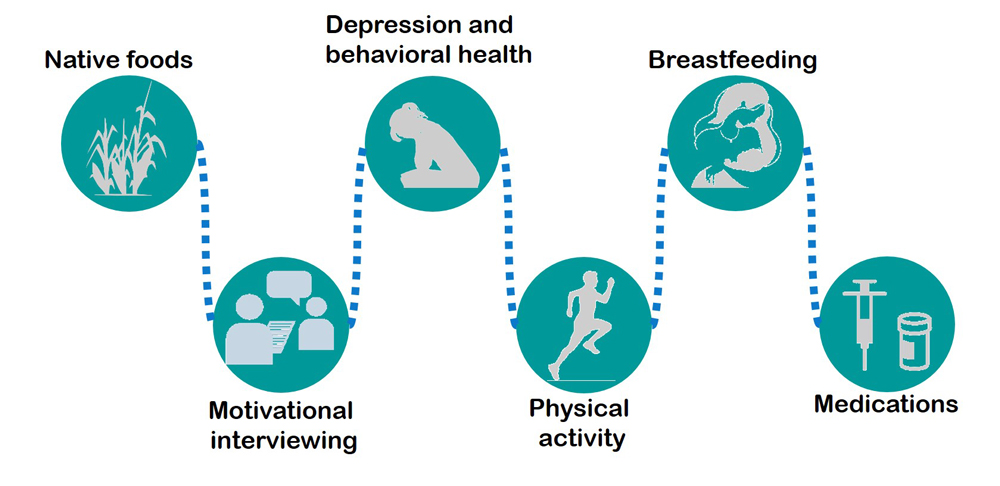
AASTEC’s Good Health and Wellness in Indian Country Program, in collaboration with University of New Mexico Project ECHO, is offering the Partners in Good Health and Wellness (PGHW) chronic disease prevention/management training for community health representatives, diabetes staff, and other health workers from the 27 Albuquerque Area Tribes and Pueblos.
AASTEC is providing guidance to UNM Project ECHO to culturally adapt their Diabetes Community Resource Education Workers (CREW) Training curriculum, such as adding Native American faculty and dialogue-based content related to Native American health teachings.
The PGHW training is aligned with AASTEC’s aim to increase delivery of trainings on team-based care and prevention and management strategies. Over the 5-year project period, AASTEC will train and mobilize up to 250 tribal paraprofessionals from all 27 Albuquerque Area Tribes. Participants complete a 16 week course, including weekly “teleclinics”, and can gain up to 5 skill endorsements related to:

The AASTEC and Project ECHO partnership has the potential to learn more effective ways to deliver health education to Native American community health workers utilizing computer based technology.
Program evaluation findings from the first two cohorts show:
- The overall pass rate for participants (n=39) across 5 skill endorsements was 96%.
- Comparison of pre and post surveys demonstrate significant improvement in knowledge and self-efficacy.
AASTEC’s GHWIC Program will follow up with participants to learn about subsequent engagement in chronic disease prevention/management activities in their tribal communities.



